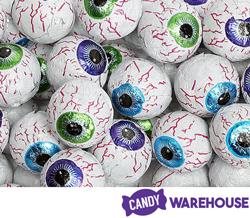

It strengthens your bones and muscles, keeps your immune system in good shape, keeps your teeth and gums healthy, and reduces the risk of many diseases-so it is no surprise that it is essential to maintaining healthy eyes. Tables provided by Antioxidants - Vitamin C Foods that provide lower percentages of the DV also contribute to a healthful diet. Your Daily Values may be higher or lower depending on your calorie needs. Percent DVs are based on a 2,000 calorie diet. The percent DV (%DV) listed on the table above indicates the percentage of the DV provided in one serving. Most food labels do not list a food’s vitamin A content. The DV for vitamin A is 5,000 IU (1,500 micrograms retinol). They were developed to help consumers determine if a food contains a lot or a little of a specific nutrient. DVs are reference numbers based on the Recommended Dietary Allowance (RDA). Peaches, canned, water pack, 1/2 cup halves or slices Pepper, sweet, red, raw, 1 ring, 3 inches in diameter by 1/4-inch thick Oatmeal, instant, fortified, plain, prepared with water, 1 packetĪpricots, with skin, juice pack, 2 halves

Selected Animal Sources of Vitamin A Food AMD and cataracts are the leading causes of visual impairment, so getting enough Vitamin A is essential to the health of your eyes. Vitamin A also helps reduce the risk of age-related macular degeneration (AMD) and it inhibits the formation of cataracts. It also helps prevent night blindness by helping the eye to adapt to changes in lighting.

Vitamin A is essential to the proper functioning of the retina. Most types of milk are also fortified with vitamin A. Vitamin A is an antioxidant found in foods derived from animals, including meat and eggs, and also in fruits and vegetables like carrots and spinach. Too much of these antioxidants will also cause various negative effects, so be careful how much you consume. Therefore, when picking fruits and vegetables, notice the color and choose the ones with more color to them.Īntioxidants are more abundant in raw fruits and vegetables, but they are lost in the cooking, canning, drying, and freezing processes. These antioxidants can help prevent age-related macular degeneration and other eye diseases, and they can slow thew growth of cataracts.įruits and vegetables are good sources of antioxidants, with the highly pigmented ones having a higher concentration. Antioxidants include Vitamin C, Vitamin E, and Vitamin A. Healthy Eyes Need Their Antioxidants-Here’s Why:Īntioxidants help prevent many diseases affecting not only the heart and immune system, but also the eyes. Others believe a high-quality multivitamin can help you meet these needs. Some experts have concluded from studies that multivitamins do not prevent diseases or promote optimal eye health. This is where multivitamins enter the equation. Most foods do not contain the amount of micronutrients we need on a daily basis, thanks to food processing, over-worked soil, cold storage, and common cooking techniques. There is currently a great deal of controversy over supplements, and whether they provide sufficient nutrients. Water-soluble vitamins need to be replaced daily. The fat-soluble vitamins are stored in the body and include A, D, E, and K, while the water-soluble vitamins (C and B) are flushed from your body. Vitamins are classified as either fat-soluble or water-soluble. Together, the brain and visual system account for 2 percent of your body weight, but they take up 25 percent of your nutritional intake. There are many eye diseases, but eating the proper foods can lower the risk of these diseases. Which Vitamins and Supplements Are Best for Healthy Eyes?Īn essential part of healthy eye care is eating foods that contain the right vitamins to keep the eyes healthy. Here we will explore the various nutrients that are essential to maintaining healthy eyes and bodies. Certain vitamins and minerals can slow the growth of cataracts and protect you against eye diseases such as glaucoma and age-related macular degeneration. Nutrition is a process in which the body digests food to obtain the nutrients it needs for growth and repair purposes.Ĭonsuming foods and supplements that supply the right amount of nutrients, combined with regular exercise, is the best way to achieve optimal eye health.

This is why the health of your body can affect your eyes. The eyes connect to the body in various ways.


 0 kommentar(er)
0 kommentar(er)
